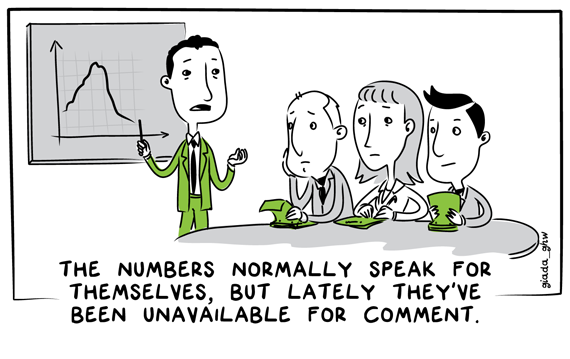Implementing the Payback Principle

I speak with small business owners every day, many of whom are just starting on their journey to small business success. Many approach me with very solid business propositions that just need a little finessing. A few, however, are full on fantasists. They have extremely grandiose, expensive ideas and no clear route to profitability. They tend to be very enthusiastic and animated when talking about "big" ideas and concepts, but easily bored and distracted when it comes to the hard work of planning and then building foundations under their castle in the sky. I am also regularly approached by sales people and prospective business partners offering a "truly unique marketing opportunity" or a "once in a lifetime investment deal". I've learnt never to be completely dismissive as every once in a while, these fantasists are really on to something. However, so as not to waste time doing extensive research and analysis for every opportunity that raises its head, I ask two simple questions which provide me with a clear view of the merits of these opportunities. These questions are:
If I spend this, what will I get back?
How quickly will I get it back?
It's easy to get caught up in justifying investment of either time or money into a project on the basis of synergies and interdependencies. Any investment justified by emotion and hype is always going to be on shaky ground. I've learnt that unless it stacks up on it's own merits, it shouldn't happen. This simple idea is called the payback principle. Like all the truly useful ideas in business, it's simple to understand but difficult to consistently apply. That's where we come in, with some helpful steps to actually applying the payback principle to your business decision making.
The payback principle can be summarised in 8 steps. They are:
1. Calculate everything on a cash basis
Do not accept promises or signed contracts or even invoices issued as the basis of your calculations. A sale is not a sale till the cash hits the bank. This is the figure you need to understand in order to properly weigh up your payback period. How much will hit the bank and when?
2. Only Consider Incremental Revenue.
Only consider those costs and revenues incurred directly as a result of the specific project. If you would have very likely spent it or received it anyway, that is to be excluded from your calculations.
3. List All Fixed Costs
It's better to be exhaustive on paper than be caught unawares when real money is on the table. The proportion of fixed costs is what governs the risk in any project. The higher the fixed costs, the higher the costs you will incur regardless of whether you sell anything or not.
4. Calculate Your Profit Margin
Do this by estimating the incremental revenue from the sale of a single product and then subtract the variable cost associated with the sale of that one product. Please do not include "halo effect" revenues when putting together a business case for or against a particular project. Only include revenues that are directly attributable to the project and that can be measured.
5. Find Out Exactly How Many Items You Need To Break Even
The simplest way to do this is to divide your fixed costs by the profit margin per sale. That will give you a break even target.
6. Compare Your Break Even To Other Points of Reference
Look around for real world data points or other comparable evidence. If it is a business idea, check out the published accounts of your competitiors. If you believe you can achieve £10 million a year turnover and your brightest competitiors are struggling to make ends meet on less than half a million, then perhaps it's time to review your idea again.
7. Make A Judgement Call
Once the analysis is complete, go with your gut. Is the return worth the risk?
8. Take Decisive Action
Once you've made a decision, you either need to get on with it immediately or get looking for the next thing that will help you grow your business and achieve your personal goals.
The beauty of the payback principle is that it is simple and it works. If an idea can be improved, by all means improve it rather than reject it. For example you might want to de-risk the investment by asking how can I reduce fixed costs or how can I generate additional revenue per unit so as to reduce the number of units required to break even? Then, once improved, subject it to the same process again. This is the very essence of calculating risk and no true entrepreneur is a pure gambler but instead takes calculated risks when he believes that his talents and strengths can be used to overcome the risks and achieve success.
Here at Continuous Business Planning, we help small businesses apply the payback principle every day. You don't need to procrastinate and agonise over every decision. You can instead make informed, rational decisions using the payback principle and then get on with it. If you want to cut through the clutter in your small business, contact us today and let us help you put the power of the payback principle into action.
